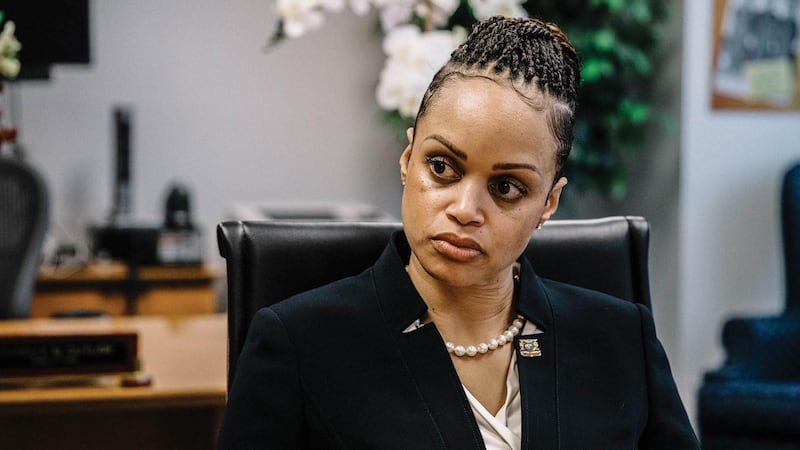As it turns out, the seven-month long investigation of Portland Police Bureau Lt. Jeff Niiya told the command staff of the bureau little it didn't already know.
That's because Niiya says PPB command staff, including Chief Danielle Outlaw, knew the scope of his communication with various protesters was somewhat broader than initially portrayed in the media—yet PPB declined to provide the more expansive communications or an explanation for how Niiya was interacting with the protest groups he was assigned to monitor.
"I was not working in a vacuum," Niiya told Independent Police Review investigator Andrea Damewood in an April interview. "I was providing information all the way up to the highest levels of this city about what was occurring."
"The chief of police knows—our current chief of police is someone else that knew about my text messages," Niiya added. "When the highest level of people in this organization are aware of things, they need—they need to understand there is a chain that everyone's held accountable and we need to do better around this."
Mayor Ted Wheeler and Outlaw yesterday released the results of a probe of Niiya's communications with Joey Gibson, the leader of the Vancouver, Wash.-based right-wing group Patriot Prayer.
In February, WW and the Portland Mercury reported that text messages the two papers obtained through public records requests showed that Niiya and Gibson communicated regularly on friendly terms. The resulting public outrage prompted Wheeler to call for an investigation of Niiya. The context for that investigation was the question of whether PPB was giving preferential treatment to Gibson and other right-wingers at the expense of their ideological opposites in the antifascist movement.
Investigators inside and outside PPB reviewed more than 11,000 text messages and interviewed Niiya and several of his colleagues and the mayor's police liaison. Their findings: Niiya did nothing wrong.
Interview transcripts show that Niiya expressed frustration that PPB command staff failed to provide full context for the text messages it released in February.
That failure to provide full context appeared to extend to what the bureau told the mayor's office, leaving Wheeler red-faced yesterday as he expressed contrition for not giving Niiya benefit of the doubt when he sought an investigation. Wheeler nonetheless said he was glad the bureau carried out the probe.
Niiya was less than thrilled.
"The context of the media about this is hurtful both personally and professionally," Niiya told IPR investigator Eric Berry in the April interview. "The fact that this police bureau and the executive management of this organization can't seem to get out in front of this, and we knew about these requests since November of 2018."
Niiya told Berry he felt he'd been hung out to dry.
"Why individuals in this department can't satisfactory (sic) perform their duties to provide context around this stuff…the media has a job to do. I completely understand that. But when the narrative is driven that is not complete, it's not a full story, right. You're only giving partial information and it's damaging to this organization. It's damaging to this city. It's damaging to me."
A PPB spokesman, Sgt. Stephen Yakots, declined to answer questions about why the bureau didn't provide more context earlier.
"I have nothing more to add regarding this investigation," Yakots said in an email.
